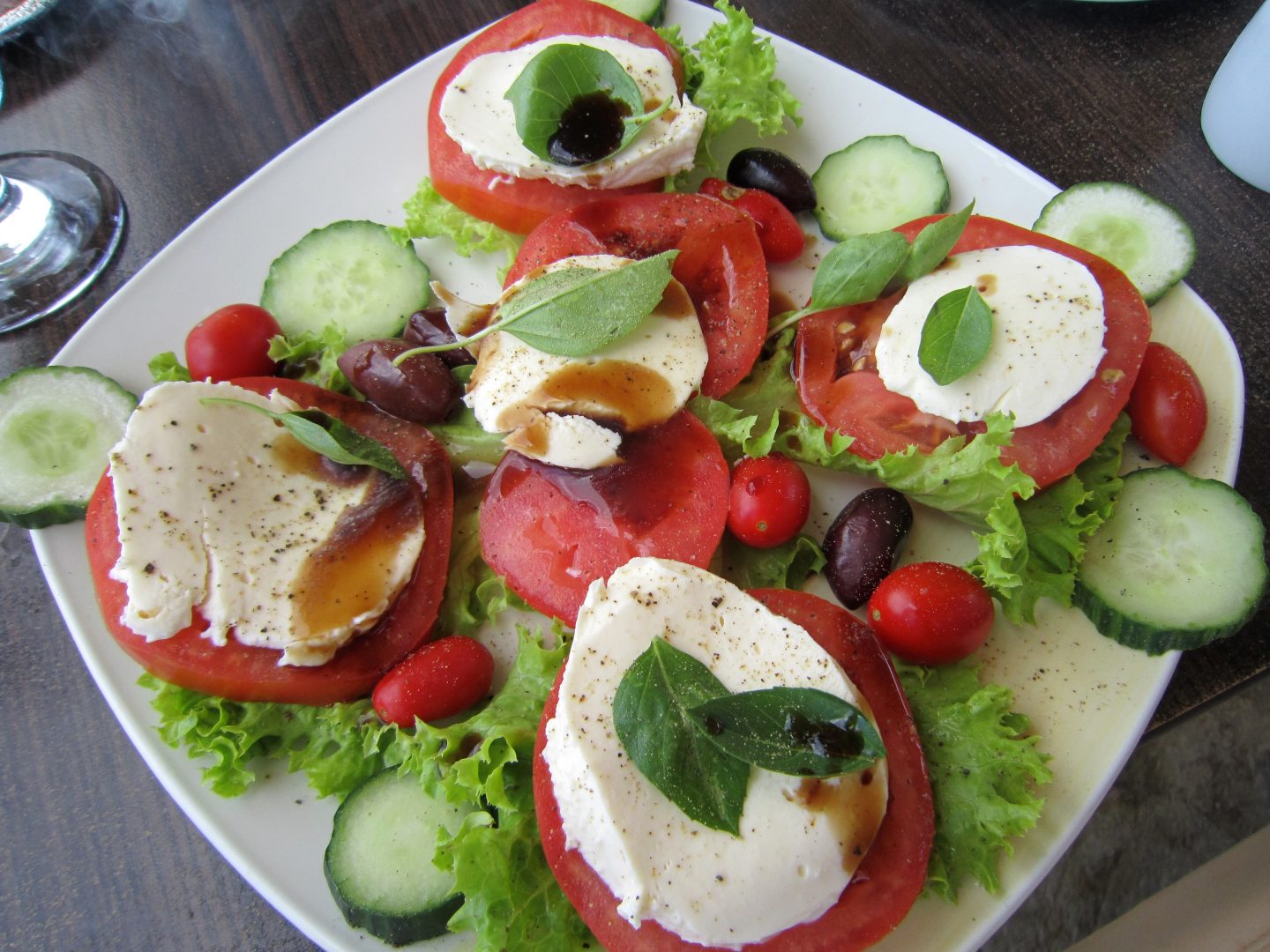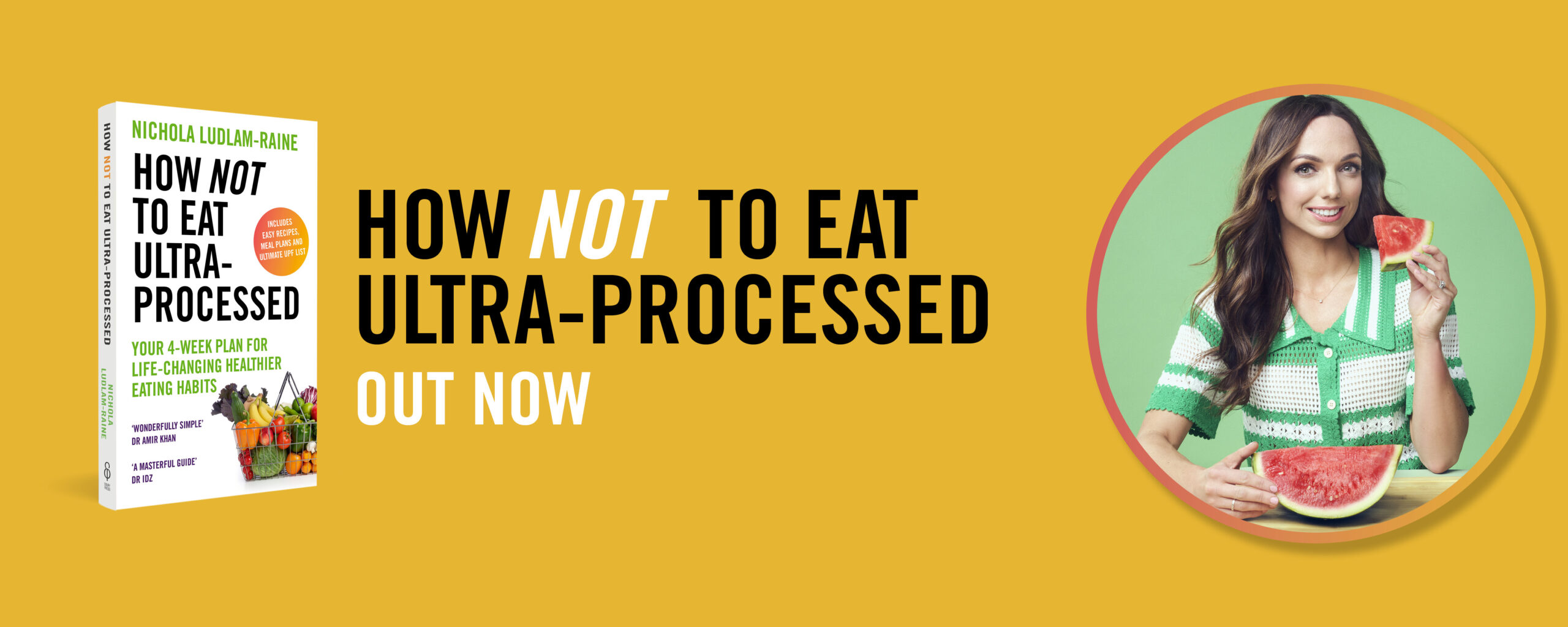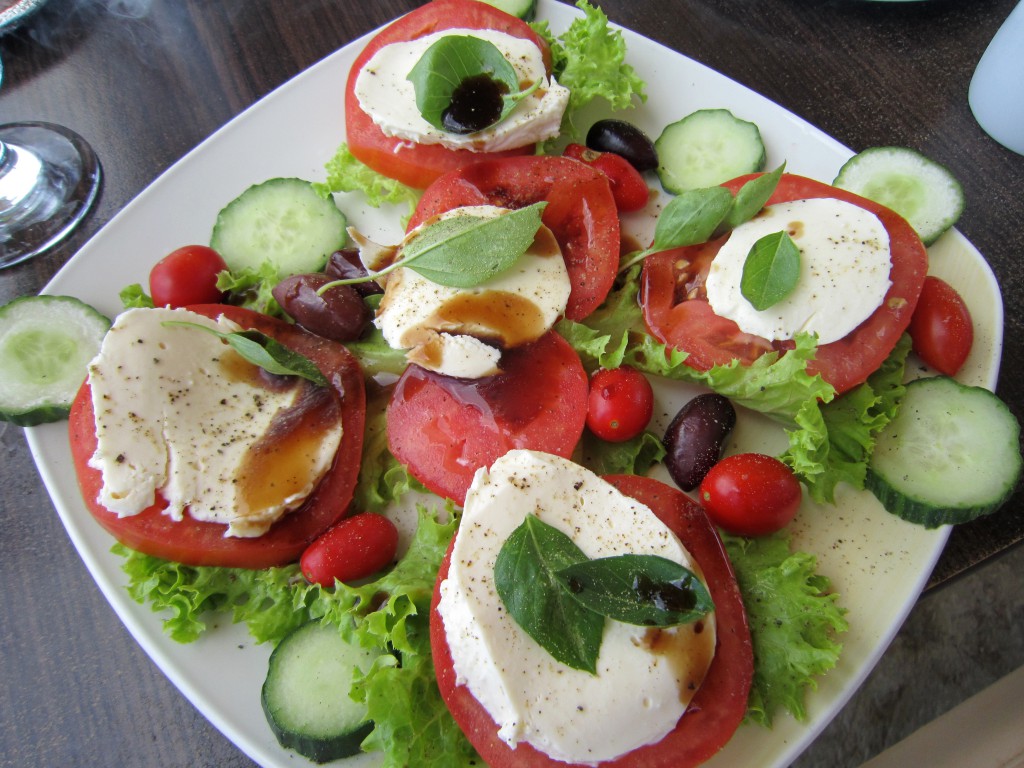
I love to eat out, doesn’t everyone?! It’s social, you can dress up, and it’s a fun way of trying out dishes you don’t normally have at home.
If you want to eat out though and still be ‘healthy’ / not ruin your weight loss efforts then read on for my top tips & watch the video below where I teamed up with Zanna from Blonde Health & Si from The Diet Kitchen to talk about how we eat out & what we order at our favourite healthy restaurants! :).
- Research the Menu Online
Most restaurants have a website and display their menus online. Having a look before you go can be a great way of planning healthy choices, which means less time spent scrutinising the menu when you’re out. Some restaurants even display the calorie information (for those who want to see it!) – you may be shocked at some of the ‘healthy’ salad options which are actually drenched in oil.
- Never Arrive Starving
Have a light healthy snack, such as a piece of fruit, before you go out to curb your appetite. This will mean that your head will do the menu choosing, and not your stomach.
- Order Water
Ordering a jug (cheaper option) or bottle of water for the table as soon as you sit down is a great idea as it a) keeps you hydrated b) gives you something calorie free to do with your hands and c) fills you up so that you’re less temped to over eat/drink more calorific beverages such as alcohol (on the subject of alcohol the clearer spirits tend to be lower in calories, with a diet mixer). Your brain can confuse hunger and thirst, so if you make sure that you’re adequately hydrated then you are 100% in control of your true hunger signals.
- Ditch the Bread Basket
If you know that you will eat food ‘if it’s there’ aka the “see food diet” then ask the waiter to take away the bread basket (once everyone has taken their piece!) – this happens a lot around Europe.. just because it’s ‘free’ doesn’t mean you should eat it (!).
- Ask the Waiter or Chef
The waiter/chef is there to make your experience enjoyable and to meet your (dietary) needs. If you want a dish cooking in a certain way e.g. with no butter/less oil/less spice etc. then just ask. If the dishes are cooked from fresh then this usually isn’t a problem. If you want to know how a certain dish is cooked then just ASK. Asking and finding out more will help you to make a more informed decision.

- Know the Language
Choose: Tomato based dishes or dishes described as being grilled, steamed or sautéed (using a small amount of oil).
Avoid: Dishes described as au gratin, scalloped, hollandaise, parmigiana and fried (foods that have added calories and fat in the form of cheese, cream or oil)
- Takeaways
Choose: To share dishes and to add your own salad (fill half of your plate with salad FIRST, before adding smaller portions of your take-out).
Avoid: Ordering large portions for one person or having take-outs too often. YES, having them once a week is frequent!
- Indian Food
Choose: Chicken or fish tandoori or tikka dishes (no sauces), biryanis and dhals (rice and lentil-based), tomato, spinach or cauliflower-based vegetable curries (cooked in a smaller amount of fat), shashlick (chicken or prawns marinated in tomatoes, onion and peppers served on a skewer) and plain boiled rice.
Avoid: Kormas, passandas and masala sauces (all cream based), lamb curries (the lamb used tends to be fatty) and pilau (fried) rice.
- Italian food
Choose: Pasta with tomato-based sauces (arrabiata, roasted vegetable or tomato and olive) and risottos (eg seafood or mushroom). Green salads dressed with balsamic vinegar and a drizzle of olive oil, ciabatta or focaccia bread. Fresh tuna steak with lentils (usually on the specials). Vegetable, chicken or seafood thin-crust pizzas (ask for reduced fat cheese where possible) or the pizzas with salad in the middle (pizza AND salad.. perfect!).
Avoid: Fried calamari, too much garlic bread, four cheese or pepperoni/salami pizzas, carbonara sauces.
- Thai
Choose: Steamed rice, vegetables or fish. Tom yum gai (hot and sour chicken soup), kung pad priaw wan (sweet and sour prawns sauteed with pineapple, pepper and tomato) and pik pow dishes (made with chillies, vegetables and low fat protein such as prawns or squid). Thai salads.
Avoid: Thai curries as they are usually loaded with coconut cream (high in saturated fat) – I prefer to make my own Thai curries at home using ‘light’ cream cheese instead of coconut cream or milk.
- Chinese
Choose: Clear soups or broths such as crab or sweet-corn soup – soups are a great filling starter. Chop sueys, sweet and sour or stir fried vegetables, prawns steamed with ginger and spring onion, tofu dishes, boiled rice and food served grilled.
Avoid: Peking duck, special fried rice, spring rolls and deep fried dishes, such as prawn crackers or dim sum. Battered meat or fish.
- Mexican
Choose: Prawn or chicken fajitas. Salsa and bean side dishes. Extra onions, tomatoes, sweetcorn, salad in wraps and tacos. Reduced fat sour cream and guacamole.
Avoid: Adding too much cheese or full fat sour cream to wraps or tacos. Too much guacamole. Too many (cheesy) nachos.
- Greek
Choose: Souvlaki (chicken or lamb kebabs), tzatziki – the most popular Greek yoghurt used in Greece is just 2% fat (go easy on the bread though!), Greek salad, hummus & olives, fish, dolmades (stuffed grape leaves), tourlou (roasted Mediterranean vegetables), gigandes (Greek baked beans), avgolemono (lemon chicken and egg soup).
Avoid: Loucanico (sausage), saganaki (fried cheese), mousaka (the béchamel sauce adds tones of calories!), sugary pastry based desserts e.g. baklava, galaktoboureko, kataifi ekmek, and bougatsa.
P.S To see what I personally ate in Greece [click here]!
- French
Choose: Arugula (rocket) & shaved parmesan salad, French onion soup, mussels in white wine/garlic broth, grilled fish/veggies/steak, sorbet & berries.
Avoid: Croissants, croque-monsieur (high fat ham & cheese sandwich), foie gras (fatty liver), beurre blanc (butter sauce), plaque de fromage (cheese plate).
P.S To see what I personally ate in France [click here]!
- Sandwiches
Choose: Different bread types to add variety and taste (eg sun dried tomato), protein-based fillers such as falafel, ham, chicken, fish or low fat cheeses such as cottage cheese and Edam. Chutneys and pickles dressings. Vegetable-based or salad-packed varieties to fill out the sandwich and keep calories low. Choose those less than 400 Kcal per pack if buying from a shop and if having at an ‘eatery’ choose to have with salad.
Avoid: Mayonnaise dressings, bacon/cheddar cheese fillers, as well as having chips as a ‘side’.
- Buffets
Choose: To fill at least half your plate with healthier options, and add some colour to your plate. Naturally colourful fruits and vegetables like crudités are not only low in calories but contain vitamins and antioxidants which are beneficial to your health.
Avoid: Pastry-based foods such as canapés, tarts, sausage rolls etc. Don’t arrive at the event too hungry – have a light meal or healthy snack prior to getting there to prevent overindulgence and try not to stand near the food table – the temptation to keep grabbing a handful or plateful of something nearby can be over whelming.
Enjoy all your meals out! And remember, if you do wish to indulge then go for it – just make sure it fits in with your healthy eating plan for the week and the 80/20 rule.


Going out tomorrow for lunch so I’m 100% doing this. Thanks for the tips. Amy
Any time! Thanks for your comment – it’s nice to know when I write helpful blogs!! x
Hi Nic, what are your tips for drinking alcohol on a night out? What would you say the best alcoholic drinks would be?
Thanks 🙂
Hello! Clearer spirits tend to be lower in calorie e.g. gin and slim line tonic, vodka and diet coke or vodka lime & soda 🙂 remember to keep hydrated with water in-between!